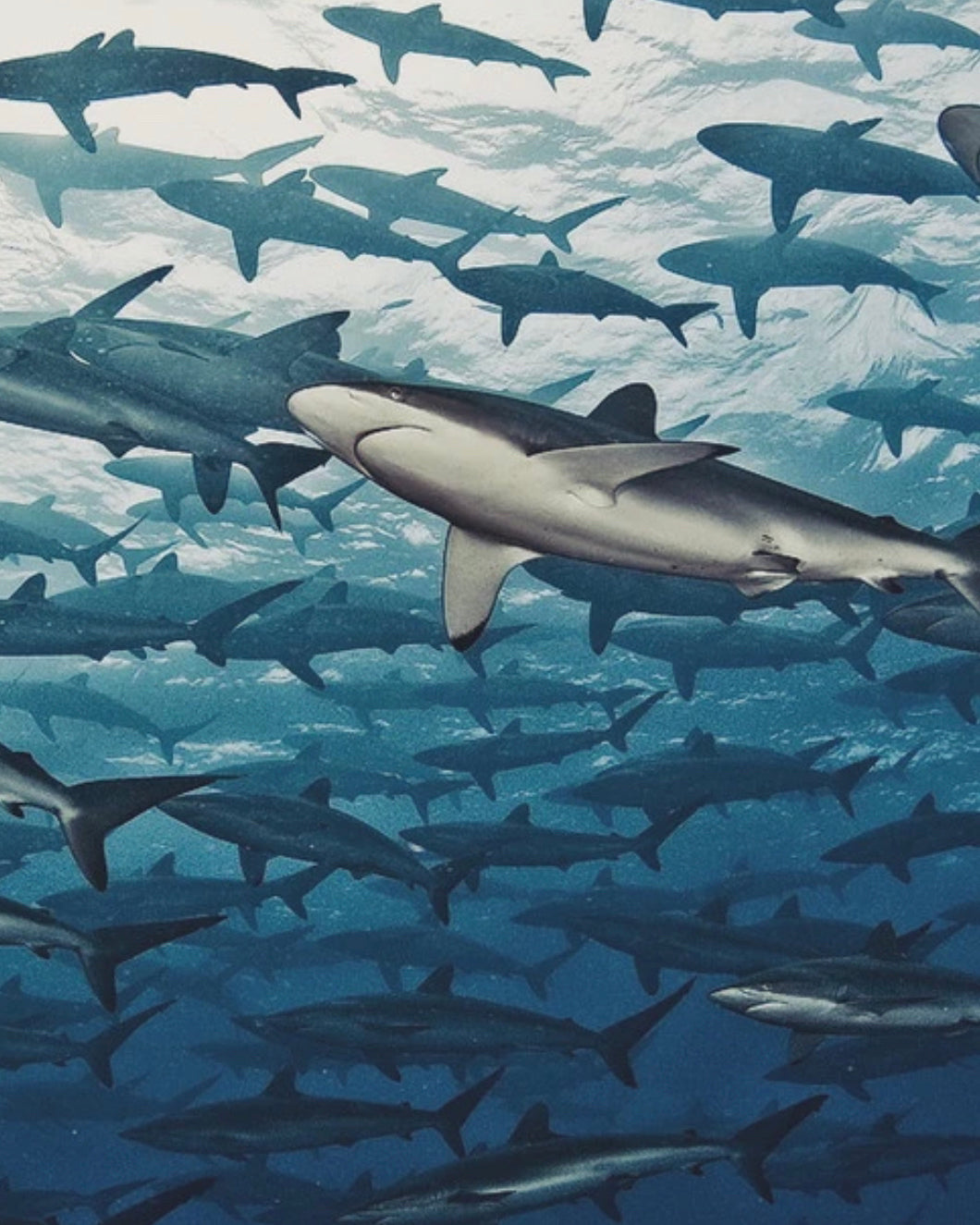Written by Thomas Leitch for Common Ground Australia
A man died today.
As I write this, a family is in mourning, his friends are in shock and the community is stunned by the news of a second local shark incident in just two days.
The details are not important, suffice it to say that Tadashi Nakahara, a 41-year-old Japanese man who has called Byron his home for the last year, lost his life, for which no words can express the loss and tragedy. But in the aftermath, the question remains: how can such shattering events be prevented from ever recurring?
Over the last year, we have seen governmental pushes for culling and drum lines, a call for more shark nets and the implementation of early-warning systems and a public outcry against such moves.
Through much of Australia’s, indeed, global history, an inherent fear has been bred in us, that sharks are out to get us, that these ferocious and blood-thirsty predators hell-bent on our demise. Kill, kill, kill has been the ‘solution’, the utter genocide of this mysterious and illusive creature about which Peter Benchley, Steven Spielberg and the global media-at-large has told us we must be terrified. And yes, while ten feet of pure muscle and steal-hard, razor-sharp teeth may be the ingredients of nocturnal cold sweats, the vast majority of this fear is unfounded.

“It does sell papers,” says Sea Shepherd Shark Ambassador for East Coast Australia, Nicole McLauchlin. “Every time there is a shark incident, especially a fatal incident, it’s picked up by the media and, unfortunately for that reason, these animals have been completely targeted by people around the world as this creature who is lurking out there, waiting for their next victim.”
But the reality, as is so often the case, is far from the truth. With no way of truly investigating an object, a shark is all but forced to bite first and ask questions later. It is incredibly rare that a shark will return to a human victim, biting only once before moving on. But, as has devastatingly been proven today, often that one bite is more than enough.
“Unfortunately for sharks, they can’t actually process what something is until they have taken a curious bite,” says Nicole. “And even more unfortunately, it is often just that one, powerful bite that ends up in these tragedies that do happen.”
None can deny that there has been a distinct increase in shark attacks over the last couple of years – the figures simply don’t lie. But, between media coverage, an ever-increasing population of water-users and the profound overfishing and depletion of fish stocks, it might be suggested that this recent shark problem is man-made.

“We’re definitely changing the balance of the marine environment and the ecosystem, and that’s causing sharks to behave differently,” Nicole reflects.
“It is their environment and we are visitors. It’s not vital for us to swim and recreationally use the ocean, however it is vital for them to have the ocean as their home. It’s the same with any wild environment – you take a risk every time you step into it.”
But, like a 1960s parent telling his child to check under the bed for Commies, our fear for sharks has, for the greater part, been bred into us. Literally hundreds of facts exist to suggest that our excessive fear of sharks is grossly irrational. Horses, for example, kill four times more people annually, cows almost five times, but these furry, benign creatures seem to breed no cause for concern. And all of these figures pale into insignificance when compared to what we do to ourselves.
So is it that education, rather than intervention, or even eradication, could be the answer?
“In the days of Moby Dick, whales and orcas were seen as these ferocious monsters of the deep,” Nicole highlights. “But now we have a greater understanding and the realization that they just do what naturally comes to them. It is important to keep it in perspective, but unfortunately that irrational fear has lead to shark nets and drum lines. As well as the public perspective, I think it is something that the media really needs to be addressing.”
Fortunately, the tide is turning, and not just in the sharks’ favour. In a survey of Western Australians conducted at the time of last year’s shark cull, over 80 percent didn’t want the cull to go ahead.
That’s well and good for the sharks, one might argue, but what happens when their numbers explode and more and more shark incidents occur?
In some regards, this could be called a valid argument, but it has been proven time and again that shark culls are ineffective in reducing the numbers of incidents.

Instead, we should be looking towards something man has excelled in above all other living creatures: technology.
“Speaking for Sea Shepherd Australia,” says Nicole, “it’s really important to push these new technologies and alternatives that are available to us now, which have been proven to protect sharks, humans and other marine life.”
Eco shark barriers, video surveillance, shark towers and projects such as the OCEARCH Global Shark Tracker iPhone app have all been shown to be an effective means of reducing the threat to humans. In South Africa, a region particularly rife in shark activity, surfers have united to create early warning systems, using flags, spotting towers and other methods to alert water-goers to the presence of sharks before it’s too late – preventative steps that save lives.
Education, too, plays a key role in prevention. Rallies and talks create a greater awareness within oceanside communities that these creatures are present, they do make mistakes, but ultimately it is up to us to remove ourselves from the danger, and not remove the danger from us.
“Sharks are keeping our oceans healthy, which in turn keeps life on land healthy, so really, we owe our very existence to a lot of these animals, the level of negative media they get is very concerning.”

It seems ironic that we have so many far greater threats that we have created, but that have become socially acceptable; cigarettes and alcohol, weapons and firearms, even driving your car, place you in infinitely more danger than entering the territory of these beautiful and misunderstood creatures.
“The very same people who are calling for the culling of sharks would be more than happy to jump into their car and drive to work every day,” reflects Nicole, “not acknowledging that it’s about one and a half thousand times more likely that they would die on their way to work than out in the water with a shark right next to them.”
We cannot blame a dog for barking, we cannot blame a wasp for stinging. Sharks do not bite out of malice or spite, they bite because they are curious and because that is what they naturally do. It is not up to the sharks to leave their home, through nets or lines or culls. It is up to us to respect these creatures and the wild environment in which they live and that we are blessed to share.
A man died today. Our hearts go out to his friends and family.






